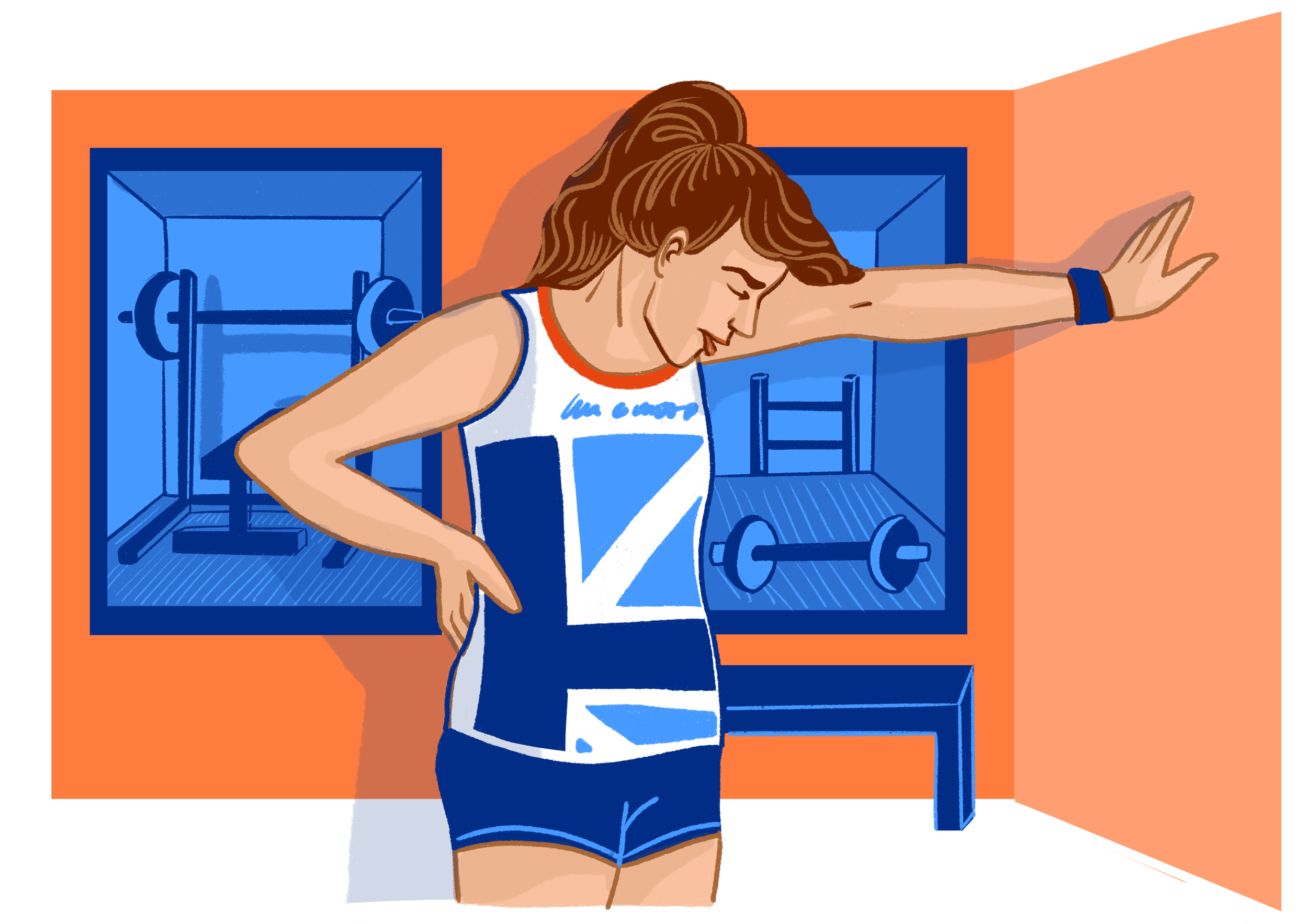STEREOTYPES TRIVIALISE INJURY
Room 1
Feminine and female stereotypes contribute to minimising and mischaracterising athletes’ injury concerns.
“Patch Up and Go”
You're not actually being looked at,
You're just getting patched up.
You're just being hysterical.
You're being hormonal.
You're just being female.
You're probably hypersensitive.
You're too dramatic.
Like sticking a plaster over a clot.
Patch, patch you up, patch up, patch up, patch up and go.
Patch up and go.
Patch up and go.
They didn't say it’s in your head,
But essentially that was the diagnosis.
She must be anxious.
Just complaining all the time.
They were ready to do a psychological intervention.
Patch, patch you up, patch up, patch up, patch up and go.
Patch up and go.
Patch up and go.
It wasn't really an option to take time off.
It was more ‘a try and figure out how to get around it’ rather than fixing the problem.
But how much can you just push through it?
How much can we just get over it?
How much are you just playing on it?
Oh, she’s getting upset again.
It’s that monthly cycle of hers.
You'd get dismissed a lot easier than the male athletes would.
Patch, patch you up, patch up, patch up, patch up and go.
Patch up and go.
Patch up and go.
Women are not seen to be the people that crack on, but we are so the opposite—
We do crack on.
All I want to do
Hand
On
Heart
Is turn up to training and do the full program every day,
But it's perceived as you trying to get out of training.
In sport, sometimes there’s a lot of things unsaid,
So they don't say things,
But everyone knows that's what they mean.
If you said something hurt, you were just being soft.
No one wants to seem weak.
No one wants to say they
can't cope.
And then bang,
You get injured.
Patch, patch you up, patch up, patch up, patch up and go.
Patch up and go.
Patch up and go.
As an athlete, I developed an intuition about how my body was.
I know how to manage myself,
And that’s why I could carry on for as long as I did.
I built this encyclopedia of things I knew worked for me.
I know my body.
I know what it feels like.
But as a woman it's hard unless you have hard data.
I wasn't being listened to.
I was made to think that it wasn't as big of a deal as it actually was.
So I just kept quiet about it,
And ultimately the injury is why I’ve had to stop sport. go.
Patch, patch you up, patch up, patch up, patch up and go.
Patch up and go.
Patch up and go.
There was never any acknowledgement of misdiagnosis.
I remember just bursting into tears because it was just like thank god,
There was an answer,
And I wasn't going mad.
I'm not going crazy.
I wasn't crazy.
If I'd stopped when I was expressing that I was in pain,
Rather than being told to carry on,
I would probably still be competing.
Patch, patch you up, patch up, patch up, patch up and go.
Patch up and go.
Patch up and go
Like sticking a plaster over a clot.



